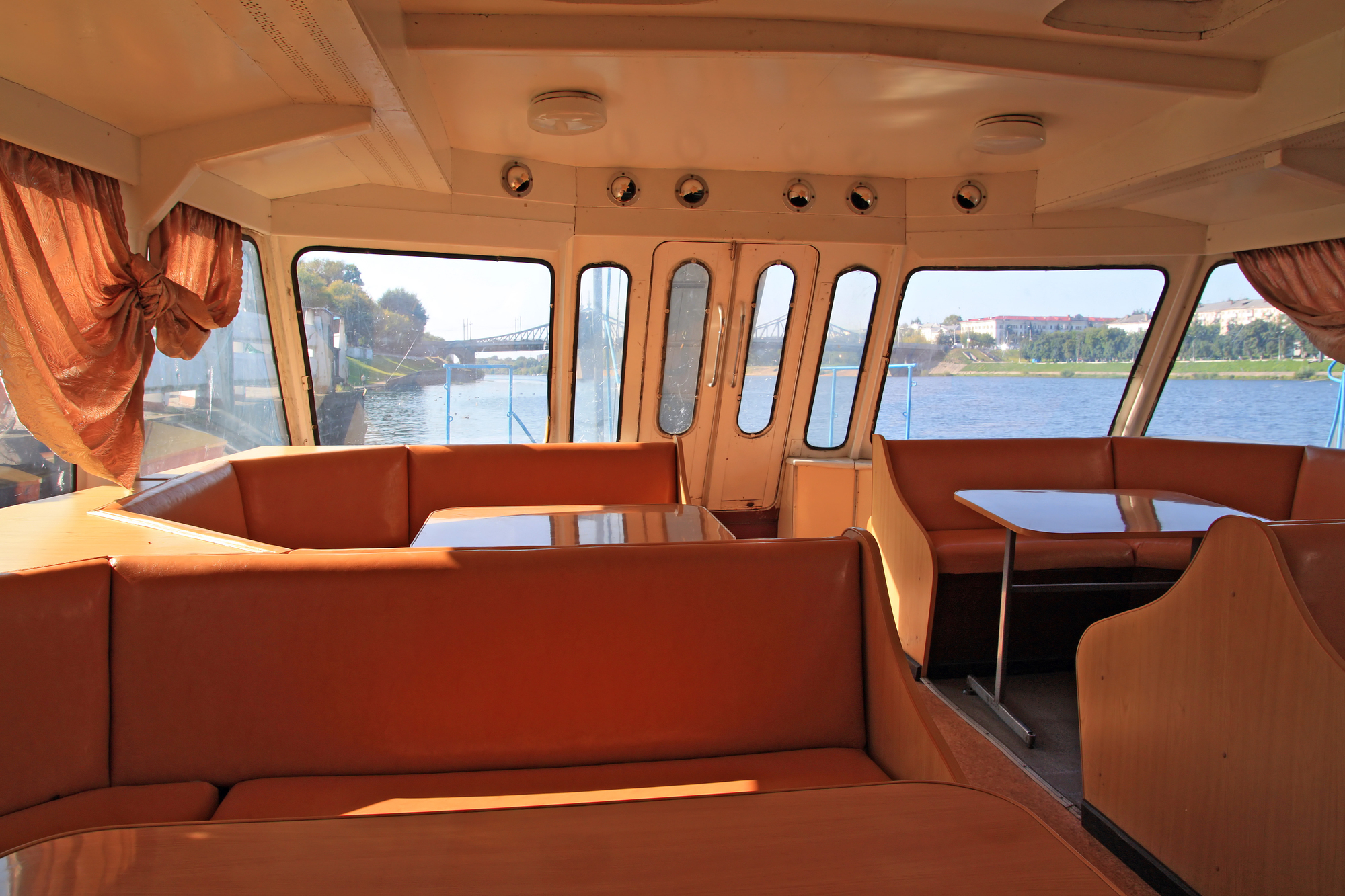
A financial advisor who knows the unique needs of liveaboard cruisers can help you make smarter money moves as you navigate new ports and plan for adventures ahead.
Are you a liveaboard cruiser? Or are you considering the benefits of trading life on land for full-time cruising aboard your vessel?
A financial advisor who understands the unique needs of liveaboard cruisers can help you make smarter money moves as you navigate harbors near and far (or as you prepare to cast off your dock lines and embrace life on the water).
You’ll likely find dozens of financial advisors in your hometown well-suited to help you reach your money goals with a personalized plan. But it may be difficult to find a financial advisor who understands the unique financial planning opportunities and challenges faced by liveaboard cruisers who may frequently move between marinas, live off-grid at anchor, or cross international waters while making their boat their primary residence.
Fortunately, many financial advisors offer virtual services so you can meet online no matter where your travels take you, whether you’re docked in the Florida Keys or dropping anchor in the Caribbean. This means you can choose to hire a financial advisor who lives thousands of miles away from your current port if you decide their knowledge about financial planning for liveaboard cruisers could help you achieve better outcomes.
Financial Planning for Liveaboard Cruisers
💡 In the Q&A below, you’ll gain insights from financial advisors who work with liveaboard cruisers to help them make smart decisions to enjoy life more today while preparing for a comfortable retirement in the future.
🙋♀️ Do you have questions not answered below? Use the form on this page to submit your questions, and we’ll update this article with answers from the financial professionals and educators in the Wealthtender community. You can also contact the financial advisors featured in this article directly to set up an introductory call or ask your questions by email.
💸 Smart Money Insights for Liveaboard Cruisers
This page is organized into sections to help you quickly find the information you need and get answers to your questions:
- Q&A with Financial Advisors Specializing in Serving Liveaboard Cruisers
- Get Answers to Your Questions About Liveaboard Cruising
- Browse Related Articles
Q&A: Financial Advisors Specializing in Serving Liveaboard Cruisers
Answers to Questions About Liveaboard Cruisers with Kevin Caldwell
We asked Chester, Maryland financial advisor and liveaboard cruiser specialist Kevin Caldwell to answer questions about this lifestyle on the water.
Q: For liveaboard cruisers (and those who are aspiring to become liveaboard cruisers) who are unsure whether or not they should hire a financial advisor at the current point in their lives, what guidance can you provide to help them make a more informed and educated decision?
Kevin: One of the biggest challenges liveaboard cruisers face is managing cash flow in a lifestyle with highly variable expenses and income sources. Unlike traditional homeowners, cruisers deal with fluctuating costs for fuel, marina fees, maintenance, provisioning, and sometimes international travel. On top of that, many cruisers have irregular income streams—retirement withdrawals, rental income, or seasonal work.
As an experienced boater myself, I fully understand the realities of life on the water—including the unpredictability of maintenance costs, the impact of weather on travel plans, and the nuances of provisioning in remote areas. That firsthand knowledge allows me to build financial plans that are not only technically sound but also practical and realistic for the cruising lifestyle.
To help clients overcome these challenges, I work with them to:
- Assess your financial readiness: Are you confident in your budget, reserves, and income strategy for cruising? Do you have your boat yet? If not, a financial advisor with extensive boating experience can help you build that foundation and figure out your boat buying budget.
- Clarify your goals: Whether you’re planning a seasonal cruise or a multi-year journey, selling your dirt home or maintaining it while cruising, aligning your financial plan with your cruising goals is essential.
- Evaluate complexity: If your financial life includes investments, retirement accounts, early retirement, rental properties, or business income (see bullet point about business owners below), professional guidance can help you optimize and simplify.
- Build a flexible cash flow plan that accounts for seasonal variations and unexpected repairs.
- Create a cruising reserve fund for emergencies so they don’t have to disrupt their long-term investments.
- Use forecasting tools to project expenses for different cruising regions (e.g., Great Loop vs. Caribbean) and align withdrawals or income accordingly.
- Support business owners who cruise full-time by offering strategic financial planning through both Islands East Advisors and our sister company, Islands East Financial Solutions. IEFS provides fractional CFO services and business consulting to help owners manage and grow their businesses while living aboard.
- Consider peace of mind: Many cruisers find that working with an advisor gives them the confidence to enjoy the journey without constantly worry about money.
- Evaluate the unknowns: If you sell your dirt home, how will you obtain a street address for your license, residency, credit cards, and mail? If you cruise internationally, how will you manage healthcare or even medevac insurance? If you want to spend extensive time in one place, do you understand how that can affect your tax liabilities? Do you travel with pets and understand the complexities this can bring to international destinations? These are just a few of the many intricacies that liveaboard cruisers face. When you hire IEA, you get an Advisor who understands these issues and has partners and contacts that can help you through each of them.
This approach gives cruisers confidence that their lifestyle is sustainable without jeopardizing their financial future—and it’s grounded in a deep understanding of both finance and the realities of life aboard.
Q: For aspiring liveaboard cruisers ready to become a boater, what actions do you recommend they take before making their way to the marina?
Kevin: Transitioning to the liveaboard lifestyle is exciting—but it’s also a major shift that requires thoughtful preparation. Here are the key actions I recommend before casting off:
- Understand the financial realities of cruising. Life aboard can be more or less affordable than land life, depending on your situation and goals, but it comes with variable costs—fuel, maintenance, marina fees, insurance, and provisioning. I help clients build realistic budgets and cash flow plans tailored to their cruising goals.
- Get hands-on boating experience. Take boating safety courses, spend time crewing with experienced cruisers potentially on some offshore runs, and practice docking, anchoring, and basic maintenance. The more confident you are on the water, the smoother your transition will be.
- Purchasing your boat. Figuring out the style of boat that best fits your needs and determining whether to pay cash or finance is a daunting task. There are many details that make this a critical decision point that requires several areas of expertise. Taxes, insurance, and financing are much more complicated than purchasing a home.
- Plan for boat maintenance. As an experienced boater myself, I know firsthand how unpredictable and costly maintenance can be. I advise clients to set aside a dedicated reserve fund for repairs and upgrades—and to understand the systems on their boat before departure. Understanding the spare parts needed to keep your cruise going until you reach an appropriate marina where you can get assistance is imperative.
- Review your insurance and legal documents. Make sure your boat insurance covers your cruising plans (especially if international), and update your estate plan, medical directives, and travel documents.
- Test your lifestyle. Before committing full-time, try living aboard for a few weeks or months, especially before you sell your home. It’s the best way to discover what works for you—and what doesn’t. It also ensures your boat, if recently purchased (new or used), is ready to cruise full-time and you obtain the required experience and confidence in your home waters.
- If you’re managing a business while cruising, plan ahead. Islands East Advisors specializes in helping both liveaboard boaters and business owners. Our sister company, Islands East Financial Solutions, offers fractional CFO services and business consulting to help you stay financially organized and operationally effective while living aboard.
Preparing well before you reach the marina ensures your cruising lifestyle is not only adventurous—but also sustainable and financially secure.
Q: When you first speak with liveaboard cruisers, what questions do you like to ask to better understand their unique circumstances and determine how you can best help them achieve their goals?
Kevin: Every cruiser’s journey is different, so I start by asking questions that help me understand both their lifestyle and financial picture. My goal is to tailor a plan that supports their cruising dreams while protecting their long-term financial health. Here are some of the key questions I ask:
- What kind of cruising are you planning? (e.g., Great Loop, Caribbean, coastal hopping, international)
This helps me estimate regional costs and plan for seasonal variations. - What’s your current income structure?
Whether it’s retirement withdrawals, rental income, remote work, or a business, I want to understand how money flows in and how stable it is. - Do you own or plan to manage a business while cruising?
If so, I introduce our sister company, Islands East Financial Solutions, which offers fractional CFO services and business consulting to help owners stay financially organized and operationally effective while living aboard. - What’s your comfort level with boat maintenance and repairs?
As an experienced boater, I know how quickly costs can escalate. Understanding their skill level helps me plan for realistic reserve funds, maintenance schedules, and risk assessment. - What is your overall boating experience?
Clients with no prior boating experience require a different level of service than clients that have owned many boats throughout their lives and have a 100-Ton Master Captain’s License. - Do you have a financial safety net or emergency fund?
Cruising can be unpredictable, so I help clients build buffers that allow them to handle surprises without derailing their plans. - What are your long-term goals—both financial and lifestyle?
Whether it’s cruising for a few years, retiring aboard, or transitioning to land life later, I want to align their financial strategy with their vision and their life transitions.
These conversations help me build a financial plan that’s not just numbers on a spreadsheet—but a roadmap for a sustainable and fulfilling cruising lifestyle.
Q: What are the biggest financial risks cruisers face, and how do you help mitigate them?
Kevin: Cruising full-time is a dream for many, but it comes with unique financial risks that can quickly derail even the best-laid plans if not properly managed. The biggest risks I see include:
- Unpredictable maintenance and repair costs.
Boats are complex systems, and unexpected breakdowns are part of the lifestyle. With all of today’s technological advancements, the more systems you install on your boat, the more difficult it is to diagnose and the more expensive it is to maintain. As an experienced boater, I understand how quickly these costs can escalate. I help clients build realistic reserve funds and plan for routine maintenance, so surprises don’t become financial emergencies. This understanding also helps me give advice to clients when purchasing their boat, so they don’t overspend. - Variable living expenses.
Costs for fuel, marina fees, provisioning, and insurance can fluctuate dramatically depending on location and season. An advisor that lacks experience in boating will not typically dig into the details of a client’s living expenses on a boat because they are unaware of what questions to ask. I combine traditional forecasting tools and my knowledge of cruising to help cruisers anticipate regional cost differences and adjust their cash flow accordingly. We also review scenarios such as what if fuel costs increase by 50%? - Irregular income streams.
Many cruisers rely on retirement withdrawals, rental income, or seasonal work. These sources can be inconsistent, so I help clients structure their finances to ensure steady cash flow and avoid shortfalls. - Limited access to financial services while underway.
Cruisers often travel in areas with limited internet or banking access. I help set up systems that allow for remote financial management, automated transfers, and secure access to critical accounts. - Managing a business while cruising.
For cruisers who are also business owners, staying organized and financially effective can be a challenge. That’s where our sister company, Islands East Financial Solutions, comes in. We offer fractional CFO services and business consulting to help owners maintain control and growth—even from the deck of their boat.
By identifying these risks early and building a flexible, forward-looking financial plan, I help cruisers enjoy the freedom of the lifestyle without sacrificing financial security.
Q: What questions do you recommend liveaboard cruisers ask financial advisors they’re considering hiring to help them decide if they’re a good fit?
Kevin: These are the top questions I would encourage asking:
- Have you ever purchased a boat larger than 30 ft and have you ever lived aboard or spent extended time cruising yourself?
- Do you have experience working with liveaboard cruisers or full-time travelers?
- Do you have extensive contacts and referrals in boat specific areas like financing, boat insurance, health insurance, boat brokers, etc.?
- Are you familiar with the financial challenges unique to boating – like maintenance, marina fees, internet connectivity, and provisioning in remote areas?
- Are you able to help me build a budget and cash flow tailored to my new lifestyle?
Get to Know Kevin Caldwell, Financial Advisor for Liveaboard Cruisers:
View Kevin’s profile page on Wealthtender or visit his website to learn more.
Are you a financial advisor who specializes in liveaboard cruisers?
✅ Join Wealthtender and get featured as a specialist financial advisor based on your knowledge and experience. (Subject to availability and terms.)
✅ Sign up today and join financial advisors attracting their ideal clients on Wealthtender
✅ Or request more information by email:
Resources to Help You Choose a Financial Advisor
✅ Top Questions to Ask a Financial Advisor
✅ How Much Does a Financial Advisor Cost?
🙋♀️ Have Questions About Financial Planning for Liveaboard Cruisers?
📰 Browse Related Articles
Are you ready to enjoy life more with less money stress?
Sign up to receive weekly insights from Wealthtender with useful money tips and fresh ideas to help you achieve your financial goals.
About the Author

About the Author
Brian Thorp
Brian is CEO and founder of Wealthtender and Editor-in-Chief. He and his wife live in Austin, Texas. With over 25 years in the financial services industry, Brian is applying his experience and passion at Wealthtender to help more people enjoy life with less money stress. Learn More about Brian





